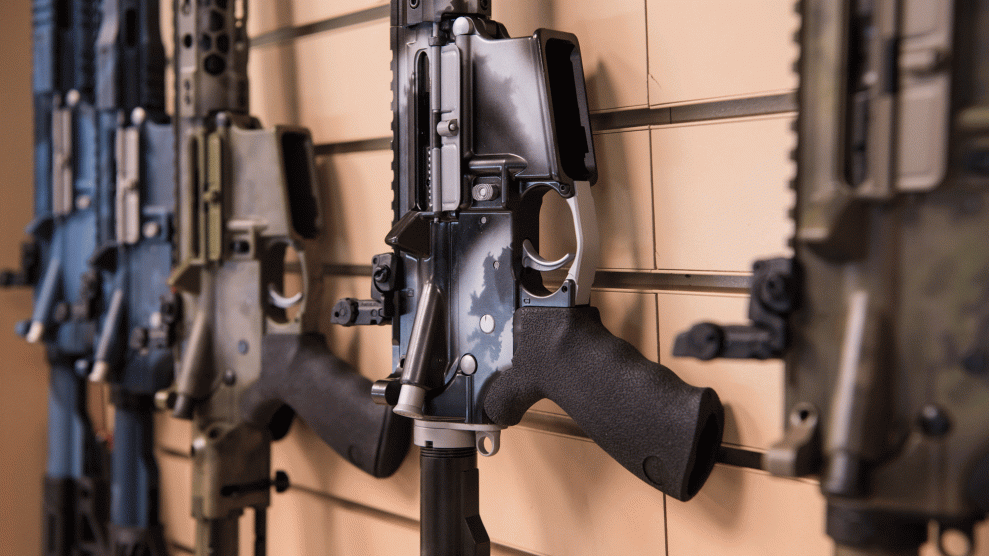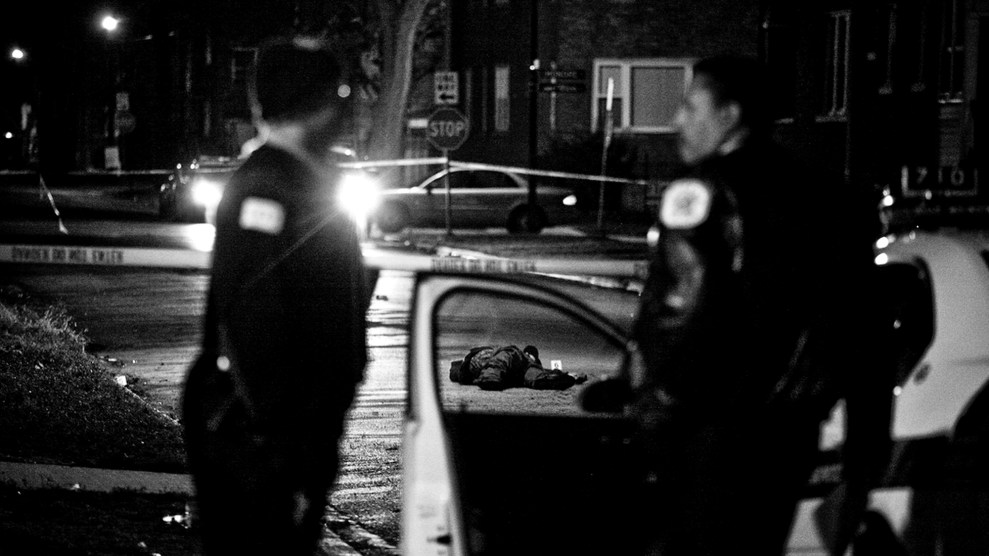
AR-15 style rifles made by Battle Rifle Co., a gunmaker in Webster, Texas, on display in its retail shop.Lisa Marie Pane/AP
Back in 2012, while stationed at Holloman Air Force Base in New Mexico, Devin Patrick Kelley—the 26-year-old gunman who entered a rural Texas church on Sunday equipped with a Ruger AR-556 rifle and killed at least 26 people—was convicted of assaulting his wife and his infant stepson.
“He assaulted his stepson severely enough that he fractured his skull, and he also assaulted his wife,” Don Christensen, a retired colonel who was the chief prosecutor for the Air Force, told the New York Times. “He pled to intentionally doing it.”
Kelley was court-martialed for two charges of domestic assault, sentenced to 12 months of confinement, and kicked out of the Air Force in 2014 with a Bad Conduct Discharge. His conviction should have prohibited him from buying or possessing firearms after his conviction, and yet, a year prior to Sunday’s massacre, Kelley was able to walk into an Academy Sports & Outdoors store in San Antonio, pass a background check, and buy the AR-556.
Kelley also managed to legally purchase the two handguns federal agents found in his car after the shootings. “By all the facts that we seem to know,” Gov. Gregg Abbott of Texas told CNN, “he was not supposed to have access to a gun. So how did this happen?”
One likely answer has to do with the way the military categorizes domestic-violence cases, and how it submits conviction records to the databases used in gun background checks. Indeed, on Monday, Air Force spokeswoman Ann Stefanek confirmed that Kelley was technically prohibited from buying a gun, but “Kelley’s domestic violence offense was not entered into the National Criminal Information Center database by the Holloman Airforce Base Office of Special Investigation.”
This may be a wider problem. As first reported by The Trace, current records show that as of the end of 2016, the Department of Defense had only a single (misdemeanor) domestic violence conviction on file with the FBI’s National Criminal Instant Background Check System (NICS). The Trace also reported that “the military has currently submitted zero records for members subject to domestic violence restraining orders.”
Thread I'm pulling now: military reports thousands of dishonorable discharges to NICS, but no bad conduct discharges, and no misdemeanor DV pic.twitter.com/fdyAZLVTcN
— Alex Yablon (@AlexYablon) November 6, 2017
The Air Force’s failure to register Kelley’s conviction with the FBI may account for why, as CNN noted, “no disqualifying information” showed up when the gun dealer ran a background check. But there remains one more mystery:
“Devin Kelley sought to get a license to carry a gun in the state of Texas,” but the state turned him down, Abbott told CNN Monday morning. (Texas law requires a license to carry a concealed handgun, but rifles and shotguns may be carried openly without a license.) Abbott didn’t say when Kelley applied for the license.
As the military news website Task & Purpose notes, any time someone applies for a concealed-carry license in Texas, authorities do a background investigation that looks at not only the FBI’s NICS system, but also local and state records. If this investigation occurred before Kelley purchased some or all of his firearms, that would suggest yet another communication breakdown between state and federal systems. “What did Texas investigators know in their handgun-license investigation of Kelley that the federal database didn’t?” writes Task & Purpose senior editor Adam Weinstein (a Mother Jones alum). “Did Texas make sure that what it knew got to federal authorities?”
Apparently not.
















